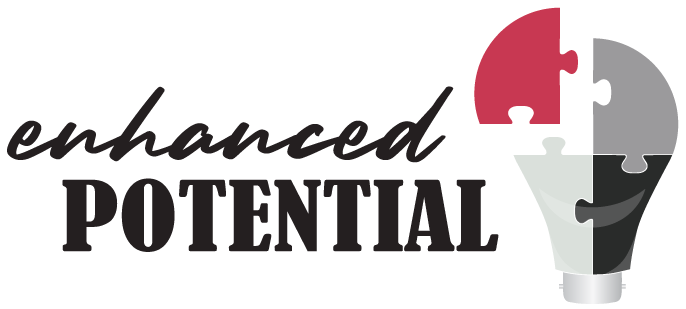If there is one constant in today’s world of work that is change.
In today’s world never has personal and professional resilience been more important. We have more teams working remotely, constant advancements in technology and access to a lot more information and data to make decisions, and these things are all changing the way we work, not mention the impact of a global pandemic!
So how do we remain career resilient? That is, how do we adjust and adapt to this constant change and uncertainty, disruption, and stress, and be prepared, in-demand and in the driver’s seat of our career?
The answer is simply: Learning Agility
Our capacity for learning is becoming the currency we trade on in our careers. Where we once went to work to learn to do a job, learning now is the job. Adaptive and proactive learners are highly prized assets for organizations, and when we invest in our learning, we create long-term dividends for our career development. (Make learning a part of you daily routine, HBR, November 2021
Learning agility is about knowing how to learn — knowing what to do when you don’t know what to do. It’s about learning from all your experiences and applying it in new ways to adapt to new circumstances and opportunities.
If you know me well, learning is one of my core values and motivators. I love to read, travel, go to museums, try different foods, explore new places and meet new people. It is driven by a thirst for knowledge and knowing that there is so much to discover and learn and we are never done!
The exciting thing about this, is that you can develop this too.
So how do we build this learning agility, so we can be more resilient in our careers in this ever-changing world. I have distilled down to six ways of being, with different strategies you can use.
Be curious
Adopting a curious mindset, means asking questions and not to going with the first solution that comes to mind. Questions like How might we…? How could I look at this differently? What would happen if…? What’s missing here? What’s my intuition saying?
Be courageous
This means having the courage to get out of your comfort zone and experiment with some different ways of doing things. Experiments help you test, learn, and adapt along the way. For an experiment to be effective, it needs to be a conscious choice and labelled as an opportunity for learning. Example might be trying a new strategy for having a particular conversation thinking how I could run meetings differently and trying better ways to share this information. Always doing the same thing gets the same results. So have some courage to test out something new in the pursuit of continuous improvement, you never know you might surprise yourself!
Be OK with discomfort
Learn to getting out of your comfort zone, if you feel uncomfortable that is a good thing, you are learning and growing. You are in the ‘conscious incompetence’ phase of the learning journey, and it feels awkward, frustrating, confusion and sometimes scary. Think back to when you first learnt to drive, how you had to think about every move, how effortful it was and then with practice and effort you soon move into ‘conscious competence’ and you felt a sense of accomplishment and excitement for the new learning and then after a while it became ‘unconscious competence’, more intuitive and automatic and just the way we do things around here. Just like lumping in the car and you can’t even remember what you did to get the car and you from A to B.
Be resourceful
A key skill in future will the ability to trouble shoot, solve problems independently and adapt to new processes and systems. Being able to effectively find the right resources to assist you on the job will be so important to keep up with constant changes we will experience in the future, especially with technology. There is so much information at our fingertips that enable us to quickly find valid information and tools to work through an issue or to learn a new technique or skill. This requires a willingness to test and try different options and invest time in upskilling yourself. Basically, not waiting to be offered a course from your employer to learn something new!
Be collaborative
The people you spend time with are a significant source of knowledge, so look for opportunities to collaborate with others and view these interactions with the lens that ‘everyone is a teacher, and everyone is a learner’. Think broadly about who you could connect with and consider people inside and outside your organisation. Meeting with someone in a different department who could help you view your team through a new lens or someone in your profession but at another company could broaden your knowledge. Connecting with people who have made different choices and have different areas of expertise than you is also a good place to discover a new perspective. Asking for feedback from your team can also help open your eyes to your development areas and potential blind spots and help take back control of your growth. Try asking questions on ‘how you can make things better’ rather than asking what I am doing wrong or poorly, really helps to open up the conversation, making it easier for people to provide constructive feedback.
Be reflective
The majority of learning is now done on the job and research shows us that this is the most effective way to learn.
“Every project, every meeting, every conversation can become an opportunity to learn and grow”. Mckinsey, 2021.
This is what it means to have a learning mindset. Taking a moment, to ask yourself what is the learning here, what worked well today? How am I working towards my development goals? How am I applying my learning on the job? Who can I ask for feedback or support and coaching with this ? What successes (not matter how small) can I acknowledge myself for (or how am I am better than I was last year, last month)?
Being reflective is so important especially when things haven’t gone to plan. It is important to take time to think positively about how you can improve your next approach, rather than dwelling on what went wrong. Building in time to constructively reflect on your learning will be a fundamental skill for tomorrow’s workforce.
We can’t predict how our careers will develop or what the world of work will look like in the future. Honing our learning agility through being curious, resourceful, collaborative, and reflective will helps us increase our readiness and our resilience for the opportunities that change presents and the inevitable challenges we’ll experience in our careers along the way.
Photo by Sincerely Media on Unsplash


